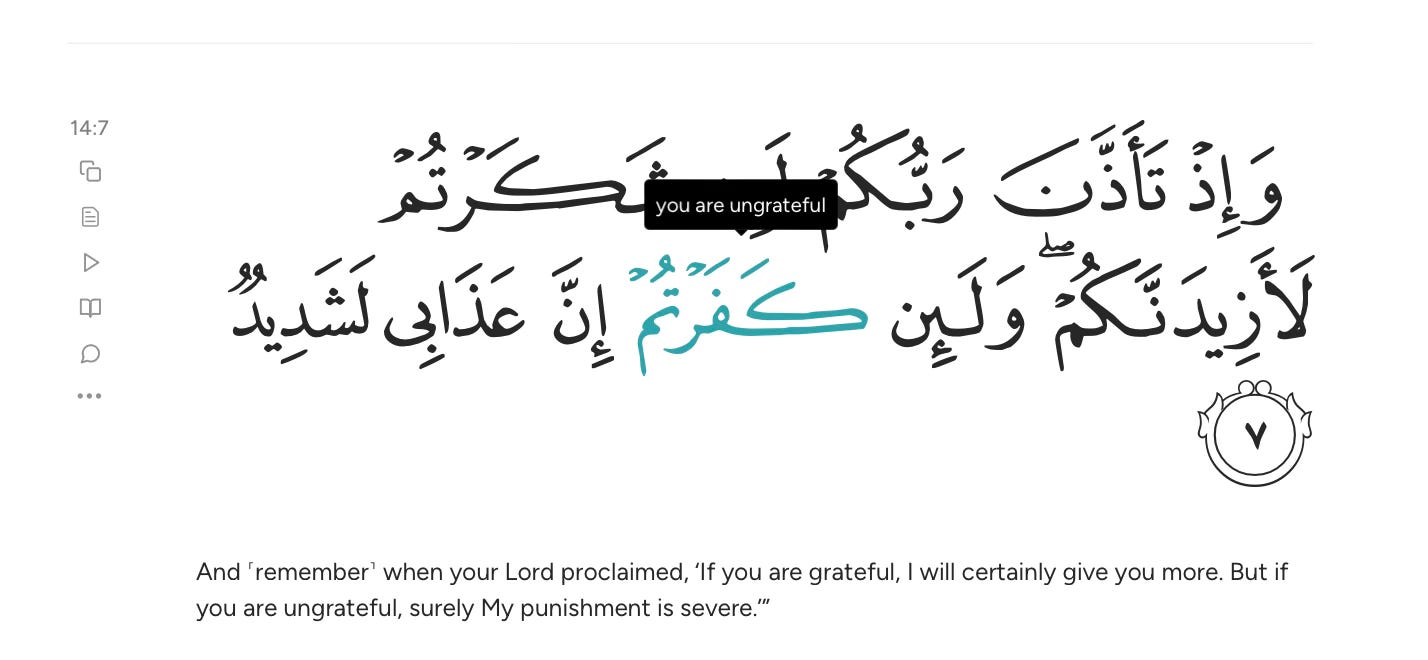Bismillah.

There is a kind of fear that we rarely question. It’s almost encouraged. It sounds harmless. Motivating, even. It goes by a name that seems trendy, modern, and innocuous: FOMO—Fear of Missing Out.
But I want to ask you today: Have you truly considered the far-reaching consequences of fearing that you’re missing out?
Because I didn’t. Not really. Not until my body failed me. Not until I was confined to a hospital bed, unsure whether I would recover. Not until everything stopped.
In that stillness, Allah allowed me to see something that had been invisible to me when life was moving fast. I saw the ungratefulness I had allowed to settle in my heart, camouflaged as ambition, longing, even hope.
FOMO isn’t just a mindset—it’s a crack in belief.
It’s a symptom of something deeper: a lack of true yaqīn (certainty) in Allah’s Qadr. It’s not always loud. Often, it shows up in whispers:
"What if I never get married?"
"What if they are all sold out?"
"What if I fail?"
"What if I never accomplish that dream I’ve been chasing?"
These thoughts don’t always feel like disbelief. But they carry doubt. And that doubt, if left unchecked, erodes our sense of trust in Allah’s perfect decree. And that erosion leads to a kind of restlessness, a reaching and grasping that never ends.
When I was in the hospital, I wasn’t feeling FOMO. There was nothing to miss out on—I was too sick to want anything other than to survive. But what hit me the hardest was the realization that I had lived much of my life focused on what I didn’t have.
And that focus had cost me something more important than any of the things I was chasing: deep, heartfelt, embodied gratitude.
Gratitude is not just saying "alhamdulillah." It’s pausing long enough to feel it. To realize, with awe, that you are already drowning in blessings. That if you were to count the blessings of Allah, you could never enumerate them.
The Qur’an tells us plainly:
"If you are grateful, I will surely increase you [in favor]; but if you deny, indeed, My punishment is severe."
— Surah Ibrahim (14:7)

The word for “ungrateful” in this ayah is related to the same root as kufr—disbelief. In some English translations ungrateful is translated as “deny”, and to be ungrateful is to deny the blessings of Allah. This realization shocked me. I looked it up. And it broke me a little. Because in that hospital room, I realized that every moment I spent obsessed with what I didn’t have was a moment I was denying the magnitude of what Allah had already given me.
And here’s the irony: I always believed Allah would provide. I said it. I taught it. I counseled others with it. And I still believe it. But belief isn’t just words. True belief is in the heart. And if you still feel afraid of missing out, then there’s work to do on the state of your heart. We all need to be in a constant state of working on purifying our hearts.
That crack is where Shayţān enters.
He whispers, "What if Allah forgets you? What if everyone else moves on? What if you're too late? What if you never heal? What if you never get the things you’ve longed for so deeply?” The what if’s are endless!
But Allah does not forget. That is not deficient in any way. Subhanallah. Allah is free from any imperfection. And any negative thoughts of Allah need to be recognized, acknowledged, and banished by turning back to Allah swt for forgiveness and His Help.
Allah is Al-Lateef, the Subtle, the One who provides in quiet, gentle, intimate ways. Sometimes we don’t even see it until much later. And sometimes, we only see it when we’re forced to stop.
When I returned home from the hospital, I was overwhelmed by everything I could do. I could sit and hear birds again. I could sip coffee without nausea. I could digest food. I could recite Qur’an with consistency. I could cry in du’a and feel my heart soften. I could feel my soul return to its longing for Allah.
These weren’t new blessings. They were just the ones I had overlooked because I was too busy longing for what wasn’t mine.
And that longing wasn’t always sinful. It’s not wrong to want good health, or a spouse, or a child, or a career, or financial ease. But when the longing becomes all-consuming, when it becomes your focus, when it takes your heart away from Allah swt—it turns into ingratitude.
Because you are focusing on the absence instead of the abundance.
Now, each day, I sit with my blessings. I try to feel them in my body. In my breath. In my tears. In my heart. I try to name them. I try to imagine what my life would be without them. I try to return to Allah with sincere regret—not shame that paralyzes, but shame that humbles. That moves me. That allows me to say:
"Ya Allah, I see it now. And I’m sorry for the times I didn’t."
And the beauty of our faith is this: Allah loves for us to return.
He loves your realizations. He loves your tears. He loves your moments of reflection, even if they come late. He doesn’t punish you for your forgetfulness when you come back to Him.
So if you’re reading this and your heart is moved, it’s not random.
Allah chose this for you.
The only question now is: What are you going to do about it?

Reflection Journal Prompt:
What blessings have I overlooked because I was too focused on what I didn’t have?
Reply to this email or comment below and let me know your reflection—I read every single one.
And if you haven’t subscribed to the newsletter yet, join me here on Substack.
Much love,
Nour Cauveren



